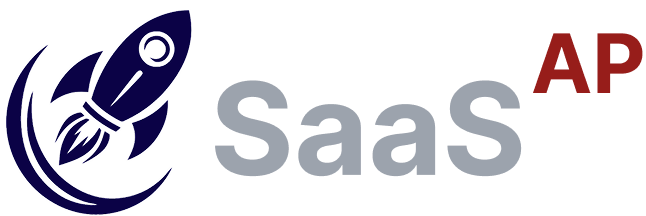Introduction
SaaS Affiliate Marketing has become a cornerstone strategy for many software-as-a-service (SaaS) businesses looking to scale their reach and revenue without expanding their internal sales teams. With the U.S. market showing consistent growth in affiliate-driven SaaS conversions, this model is no longer a side tactic—it’s central to go-to-market strategies.
But what does the future hold for SaaS Affiliate Marketing? As automation, AI, and evolving consumer behavior reshape digital commerce, affiliate programs must evolve to remain effective. In this post, we’ll explore how SaaS Affiliate Marketing is changing, where it’s headed, and the most common pitfalls to avoid. Whether you’re building an affiliate program or scaling an existing one, this guide will help future-proof your strategy.
1. What Is SaaS Affiliate Marketing? (A Quick Recap)
SaaS Affiliate Marketing is a performance-based marketing model where affiliates (bloggers, influencers, niche publishers, etc.) earn a commission for driving traffic or customers to a SaaS product. It’s a win-win: SaaS brands get broader reach, and affiliates earn passive income.
Example: A productivity SaaS company partners with tech bloggers. When a blogger promotes their tool with a unique affiliate link and a reader subscribes, the blogger earns a commission—often a recurring monthly percentage.
As simple as it sounds, SaaS Affiliate Marketing involves a complex ecosystem of tracking tools, program rules, content strategies, and compliance.
2. Prediction #1: AI Will Power Smarter Affiliate Targeting
AI is transforming SaaS Affiliate Marketing at every level—from identifying high-performing affiliates to recommending optimized content. Predictive analytics and customer segmentation are allowing programs to deliver hyper-targeted campaigns.
Key Benefits of AI in Affiliate Marketing:
- Dynamic commission adjustments based on predicted LTV.
- AI-driven content suggestions for affiliates.
- Fraud detection powered by behavioral analysis.
Tip: SaaS companies should integrate AI-powered affiliate platforms like PartnerStack or Tune to future-proof their strategy. Affiliates can also benefit by using AI tools to optimize blog content and audience targeting.
3. Prediction #2: Micro-Influencers Will Dominate the Affiliate Landscape
Gone are the days when only mega-influencers or big publishers succeeded in SaaS Affiliate Marketing. The trend is moving toward micro-influencers—creators with small but highly engaged audiences in niche markets.
Why Micro-Influencers Matter:
- Their audiences trust them more than larger influencers.
- They create authentic, relatable content.
- Conversion rates are often higher despite fewer followers.
Strategy Insight: SaaS brands should diversify their affiliate portfolio by onboarding micro-influencers with deep expertise in their domain—like HR consultants promoting an HR SaaS or data analysts promoting BI software.
4. Prediction #3: Performance Will Overtake Popularity
In the future, affiliate programs will shift focus from who affiliates are to how well they perform. Instead of chasing affiliates with large audiences, SaaS brands will emphasize affiliates who deliver ROI—regardless of their follower count.
What Will Matter Most:
- Conversion rates
- Subscriber retention
- Customer lifetime value
Best Practice: Track metrics beyond clicks. Use attribution tools that connect affiliate referrals to long-term customer engagement to measure true affiliate value.
5. Pitfall #1: Over-Reliance on Discount Codes
Many SaaS affiliate programs lean heavily on discount codes to incentivize conversions. But in a competitive market, this can erode brand value and customer trust.
Why It’s a Problem:
- Perceived devaluation of product quality.
- Trains customers to wait for deals.
- Affiliates may become overly salesy, turning off audiences.
Solution: Combine codes with value-driven messaging. Focus on use cases, success stories, and feature breakdowns—especially when promoting high-ticket or B2B SaaS tools.
6. Prediction #4: Vertical SaaS Will Create Niche Affiliate Opportunities
Vertical SaaS (industry-specific tools) is growing rapidly, from legal practice software to dental clinic CRMs. This rise will give way to hyper-targeted SaaS Affiliate Marketing in sectors previously untouched by digital affiliates.
Emerging Niches:
- Construction project software
- Veterinary scheduling platforms
- Religious group management tools
Action Step: Affiliates should research underserved SaaS niches and create authority sites or newsletters around them. SaaS brands should partner with industry experts—not just general marketers.
7. Pitfall #2: Neglecting the Affiliate Experience
Too many SaaS companies treat affiliate programs as set-it-and-forget-it machines. But today’s affiliates expect:
- Onboarding support
- Marketing materials
- Real-time tracking
- Consistent communication
Affiliate Retention Tips:
- Send monthly updates with new features and assets.
- Recognize top performers publicly.
- Create a dedicated affiliate portal.
Improving the affiliate experience strengthens the partnership, improves performance, and creates brand ambassadors—not just marketers.
8. Prediction #5: SaaS Affiliate Marketing Will Blend with Influencer Marketing
The line between influencer marketing and affiliate marketing is fading. As influencer platforms add affiliate tools, creators will expect both upfront sponsorships and long-term commissions.
What This Means for SaaS Brands:
- Creators will negotiate hybrid deals.
- Video-first content (YouTube, TikTok) will dominate affiliate conversions.
- Attribution will be multi-touch, not last-click.
Tip: Invest in creator partnerships that offer short-term exposure and long-term performance. Use trackable links in videos, stories, and live demos.
9. Pitfall #3: Failing to Address Legal and Compliance Risks
The FTC in the U.S. continues to tighten rules around disclosure and deceptive advertising. SaaS Affiliate Marketing programs must stay compliant or risk fines and reputational damage.
Compliance Musts:
- Affiliates must disclose relationships clearly.
- No false or exaggerated product claims.
- GDPR and CCPA compliance if affiliates target global users.
Actionable Step: Create a compliance checklist for affiliates and monitor their content regularly. Use automated tools to scan for missing disclosures or policy violations.
10. Prediction #6: Recurring Commissions Will Become the Norm
As SaaS pricing models remain subscription-based, affiliate programs are shifting toward recurring commissions instead of one-time payouts. Affiliates are choosing programs that reward long-term value over upfront wins.
Benefits for Affiliates:
- Predictable income.
- Motivation to promote high-retention products.
- Incentive to educate and nurture users.
Advice for SaaS Founders: Structure your commission plan with milestones (e.g., 20% for 3 months, then 10% ongoing) to reward affiliates and align interests.
11. Pitfall #4: Underestimating the Power of SEO in Affiliate Content
SaaS Affiliate Marketing relies heavily on content—blogs, review pages, comparison posts. Yet many affiliates ignore SEO, and many SaaS companies fail to support affiliates with optimized content assets.
SEO Best Practices:
- Keyword-rich content targeting bottom-funnel queries (e.g., “Best CRM for law firms”).
- Internal linking to product pages.
- Fast-loading affiliate landing pages.
Support Tip: Share keyword ideas, templates, and search trend data with your affiliates. Treat them like an extension of your content team.
12. Prediction #7: Communities Will Drive Next-Gen Affiliate Growth
SaaS brands are seeing success by integrating affiliate marketing into online communities—Slack groups, Discord servers, Facebook groups, and niche forums.
Benefits of Community-Based Affiliate Promotion:
- High trust levels.
- Instant feedback loops.
- Real conversations, not polished sales pitches.
Tactic: Empower community leaders with affiliate tools and trackable incentives. Let them organically promote your SaaS through value-first engagement.
13. How to Future-Proof Your SaaS Affiliate Marketing Strategy
To stay competitive in the next era of SaaS Affiliate Marketing, both brands and affiliates must adopt a proactive, adaptive, and performance-driven approach.
For SaaS Companies:
- Automate tracking and payments with affiliate software.
- Prioritize quality over quantity in affiliate recruitment.
- Keep your program aligned with product updates and brand messaging.
For Affiliates:
- Specialize in a niche and become an expert.
- Use AI and analytics to refine your content.
- Stay up to date on compliance and disclosure best practices.
Conclusion
SaaS Affiliate Marketing is no longer a “nice to have.” It’s an essential growth lever—when executed correctly. As the landscape matures, the winners will be those who evolve with the trends, prioritize relationships, and treat affiliate marketing as a strategic partnership.
By staying ahead of AI, influencer dynamics, community trends, and compliance requirements, your SaaS affiliate program can drive long-term value—not just quick wins. And if you’re an affiliate? There’s never been a better time to carve your niche in this booming digital economy.
SaaS Affiliate Partner empowers SaaS companies to accelerate growth by building high-performing affiliate partnerships. Our intelligent platform and comprehensive SaaS Tools Directory make it easy to connect with top affiliates, manage relationships, and drive sales within a seamless, results-driven ecosystem. Whether you want to list your SaaS product or find the perfect affiliate partners, we simplify the entire process to help you scale faster.
FAQs: The Future of SaaS Affiliate Marketing
Yes, especially with recurring commission models and niche-focused programs gaining traction.
Use platforms like PartnerStack, Rewardful, or Tapfiliate to manage tracking, commissions, and onboarding.
Subject-matter experts, micro-influencers, and content-driven marketers perform best due to high audience trust.
Recurring commissions are preferred for SaaS products, as they align with subscription models.
SEO tools (Ahrefs, Surfer), link trackers, AI content generators, and analytics dashboards.
Reach out directly to niche bloggers, YouTubers, and consultants in your space with a value-driven pitch.

